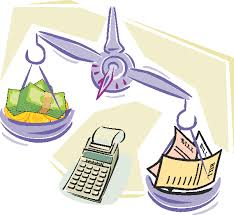Education programmes of job
Accounting Mathematical Statistics
Applied Statistics
Auditing MSc
Accounting MSc
Monetary and Financial Economics MSc

Nature of work
A budget analyst usually examines budget estimates for completeness, accuracy, and conformance with procedures and regulations. In addition to, Analyzing budgeting and accounting reports.He/she advise various institutions, including governments, universities, and businesses, on how to organize their finances. He/she prepares annual and special reports and evaluate budget proposals. He/she analyzes data to determine the costs and benefits of various programs and recommend funding levels based on their findings. Although officials (in government) or top executives (in a private company) usually make the final decision on an organization's budget, they rely on the work of budget analysts to prepare the information for that decision.
Sometimes, budget analyst uses cost-benefit analyses to review financial requests, assess program tradeoffs, and explore alternative funding methods. Budget analyst also may examine past budgets and research economic and financial developments that affect the organization's income and expenditures. Budget analyst may recommend program spending cuts or redistributing extra funds.
Environment of work
A budget analyst works in an offices. He/she works in a variety of settings, including government agencies, universities, and companies. Although budget analyst usually works in offices, some may travel to get budget details firsthand or to verify funding allocations.If a candidate is unsociable person, he/she will able to manage his job because He/she will spends most of his/her time working independently, compiling and analyzing data and preparing budget proposals. In nonprofit and government organizations,an analyst tries to find the most efficient way to distribute funds and other resources among various departments and programs. In private firms, a budget analyst's main responsibility is to review the budget and seek new ways to improve efficiency and increase profits.
An employee might feel stress, for he needs to work full time, and overtime is sometimes required during final reviews of budgets. The pressures of deadlines and tight work schedules can be stressful.
Professional life
Employment of budget analysts is expected to grow during next years in Syria, about as fast as the average for all occupations. Budget analysis is getting more complex as more types of data and statistical techniques become available. Because of the greater complexity of the job and its expanding job duties, it is expected to create a need for more budget analysts.The starting monthly sallary of budget analysts is 30000 SYP.
Getting the job
If a person wants to apply for this job, he/she should have at least a bachelor's degree. However, some employers may require candidates to have a master’s degree. Because developing a budget requires strong numerical and analytical skills, courses in statistics or accounting are helpful. Public sectors have varying requirements but usually require a bachelor's degree in one of many areas, such as accounting, finance, business, public administration, economics, statistics, political science, or sociology.No matter in case a candidate doesn't have formal education, for sometimes budget-related or finance-related work experience can be a substituted.
Certification provides an advantage in the job market because it shows professional competence in a specialized field of accounting and auditing. Accountants and auditors seek certifications from a variety of professional societies.
The Certifications are :
- Certified Public Accountant (CPA)
- Certified Management Accountant (CMA)
- Certified Financial Manager (CFM)
- Certified Fraud Examiner (CFE)
- Certified Financial Planner (CFP)
- Certified Internal Auditor (CIA)
- Enrolled Agent (EA)
- Certified Financial Consultant (CFC)
Skills
A candidate should show evidence of the following skills:Reading Comprehension - Understanding written sentences and paragraphs in work related documents.
Active Listening to give full attention to what other people are saying, taking time to understand the points being made, asking questions as appropriate, and not interrupting at inappropriate times.
Speaking - Talking to others to convey information effectively.
Critical Thinking: a person should Use logic and reasoning to identify the strengths and weaknesses of alternative solutions, conclusions or approaches to problems.
Judgment and Decision Making are important because an employee should Consider the relative costs and benefits of potential actions to choose the most appropriate one.
Complex Problem Solving which includes Identifying complex problems and reviewing related information to develop and evaluate options and implement solutions.
Mathematics - Using mathematics to solve problems.
Writing skills to Communicate effectively in writing as appropriate for the needs of the audience.
Time Management - Managing one's own time and the time of others.
Sources and references
For further information about this career a candidate can visit these websites:- www.budgetanalyst.com, a practical guide to the budget process.
- www.budgetanalyst.com, References for the Analyst - Budget Analyst
- Arab Standard Classification of Occupations, 2008, Ed. Arab Labor Organization
